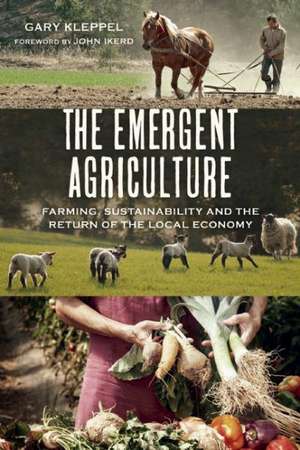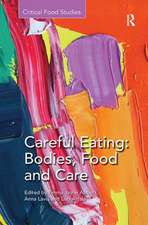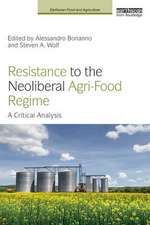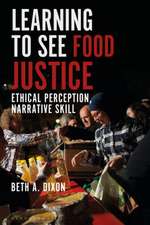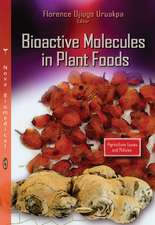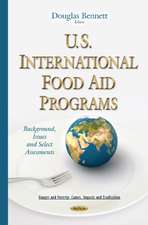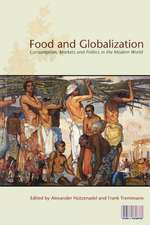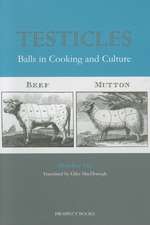The Emergent Agriculture: Farming, Sustainability and the Return of the Local Economy
Autor Gary Kleppel John Ikerden Limba Engleză Paperback – 21 iul 2014
Long embraced by corporations who are driven only by the desire for profit, industrial agriculture wastes precious resources and spews millions of tons of greenhouse gases into the atmosphere each year, exacerbating climate change and threatening the very earth and water on which we depend. However, this dominant system, from which Americans obtain most of their food, is being slowly supplanted by a new paradigm.
The Emergent Agriculture is a collection of fourteen thematic essays on sustainability viewed through the lens of farming. Arguing that industrial food production is incompatible with the realities of nature, science, and ethics, this lyrical narrative makes the case for a locally based food system which is:
Gary Kleppel is a professor of biology at the SUNY Albany, where he focuses on sustainable agriculture, conservation-based grazing, and the ecology of human-dominated landscapes. He and his wife Pam are owners of Longfield Farm, where they produce grass-fed lamb, wool, free range chickens and eggs, and artisanal breads.
The Emergent Agriculture is a collection of fourteen thematic essays on sustainability viewed through the lens of farming. Arguing that industrial food production is incompatible with the realities of nature, science, and ethics, this lyrical narrative makes the case for a locally based food system which is:
- Stable in the face of economic uncertainty
- Resilient in the face of environmental variability
- Grounded in stewardship of the land, on attaching value to food and the craft involved in producing it, and on respecting the dignity of farmers, consumer,s and livestock
Gary Kleppel is a professor of biology at the SUNY Albany, where he focuses on sustainable agriculture, conservation-based grazing, and the ecology of human-dominated landscapes. He and his wife Pam are owners of Longfield Farm, where they produce grass-fed lamb, wool, free range chickens and eggs, and artisanal breads.
Preț: 98.54 lei
Nou
Puncte Express: 148
Preț estimativ în valută:
18.85€ • 19.69$ • 15.57£
18.85€ • 19.69$ • 15.57£
Carte disponibilă
Livrare economică 25 martie-08 aprilie
Preluare comenzi: 021 569.72.76
Specificații
ISBN-13: 9780865717732
ISBN-10: 0865717737
Pagini: 165
Ilustrații: B&W photos, charts
Dimensiuni: 152 x 226 x 13 mm
Greutate: 0.3 kg
Editura: New Society Publishers
Locul publicării:Canada
ISBN-10: 0865717737
Pagini: 165
Ilustrații: B&W photos, charts
Dimensiuni: 152 x 226 x 13 mm
Greutate: 0.3 kg
Editura: New Society Publishers
Locul publicării:Canada
Recenzii
Tipping points in food and farming are obvious to anyone courageous enough to
look. This highly readable treatise explains the healing future awaiting us. Let's learn, embrace, and move forward. This book describes the future perfectly. ---Joel Salatin, Polyface Farm
Here's the inside story on the most hopeful development in American culture in recent years. As local food systems grow and intertwine, they form a subversive challenge to the too-big-to-fail agriculture we've somehow come to accept as normal. ---Bill McKibben, author, Deep Economy
In The Emergent Agriculture, Gary Kleppel leverages his extensive experience as an ecologist, teacher and farmer for an honest, sound and accessible examination of the often hidden costs of our current industrial agro-food system and the rise of one based on ethics, ecology and community replacing it. ---Sean Clark, farm director and agricultural ecologist, Berea College, Kentucky
Dr. Kleppel makes an eloquent and well-researched case for supporting agricultural production that is community-based, appropriately scaled to local resources, nutritionally rich, and ethical. The content evokes Wendell Berry and Michael Pollan, but with many fresh insights about the enriched food systems that are sprouting from the ground up across the globe. ---Marianne Sarrantonio, associate professor of sustainable agriculture, University of Maine
Notă biografică
Gary Kleppel is a professor of Biology at the State University of New York at Albany where he focuses on sustainable agriculture, conservation-based grazing, and the ecology of human-dominated landscapes. He and his wife Pam are owners of Longfield Farm, where they produce grass-fed lamb, wool, free range chickens and eggs, and artisanal breads. As part of their educational mandate, the Kleppels demonstrate sustainable farming practices and the importance of including ethics in food production to more than 100 visitors annually.
Textul de pe ultima copertă
Local, diverse and resilient – the new culture of food
…the inside story on the most hopeful development in American culture in recent years. ---Bill McKibben, author Deep Economy
This book describes the future perfectly.---Joel Salatin, Polyface Farm
Written from the vantage point of a farmer-ecologist, The Emergent Agriculture is a fascinating conversation about the future of food. Arguing that industrial food production is incompatible with the realities of nature, science and ethics, this collection of fourteen lyrical essays makes the case for a locally based food system which:
Nourishes the bonds between farmers and consumers
Remains stable in the face of economic and environmental uncertainty
Celebrates stewardship and craftsmanship, and honors the growers who feed the soil.
A revolution in food production is underway. The Emergent Agriculture is essential reading for anyone interested in food security and the potential for growing local economies. Food for thought about the future of food.
…
…an eloquent and well-researched case for supporting agricultural production that is community-based, appropriately scaled to local resources, nutritionally rich and ethical. ---Marianne Sarrantonio, Associate Professor of Sustainable Agriculture, University of Maine
Gary Kleppel is a professor of Biology at the SUNY Albany, where he focuses on sustainable agriculture, conservation-based grazing, and the ecology of human-dominated landscapes. He and his wife Pam are owners of Longfield Farm, where they produce grass-fed lamb, wool, free-range chickens and eggs, and artisanal breads.
…the inside story on the most hopeful development in American culture in recent years. ---Bill McKibben, author Deep Economy
This book describes the future perfectly.---Joel Salatin, Polyface Farm
Written from the vantage point of a farmer-ecologist, The Emergent Agriculture is a fascinating conversation about the future of food. Arguing that industrial food production is incompatible with the realities of nature, science and ethics, this collection of fourteen lyrical essays makes the case for a locally based food system which:
Nourishes the bonds between farmers and consumers
Remains stable in the face of economic and environmental uncertainty
Celebrates stewardship and craftsmanship, and honors the growers who feed the soil.
A revolution in food production is underway. The Emergent Agriculture is essential reading for anyone interested in food security and the potential for growing local economies. Food for thought about the future of food.
…
…an eloquent and well-researched case for supporting agricultural production that is community-based, appropriately scaled to local resources, nutritionally rich and ethical. ---Marianne Sarrantonio, Associate Professor of Sustainable Agriculture, University of Maine
Gary Kleppel is a professor of Biology at the SUNY Albany, where he focuses on sustainable agriculture, conservation-based grazing, and the ecology of human-dominated landscapes. He and his wife Pam are owners of Longfield Farm, where they produce grass-fed lamb, wool, free-range chickens and eggs, and artisanal breads.
Cuprins
Acknowledgments Foreword Introduction - On the Cusp of a Revolution
I. Farming: An Emerging Paradigm 1. A New Approach to Agriculture 2. The Paradox of Agriculture 3. Farm Subsidies
II. Sustainability 4. Toward a Sustainable Agriculture 5. Sustainable Meat - A Contradiction in Terms? 6. Diversity in Agriculture 7. Energy and the Future of Farming 8. The New Normal
III. The Local Economy 9. The Emergent Market 10. The Consumer in a Changing Food System 11. Slow Money 12. CSA 13. Scaling Up - How Local Farms Will Feed America
IV. Conclusion 14. The Emergent Agriculture
Endnotes Index About the Author
Descriere
Local, diverse and resilient – the new culture of food
